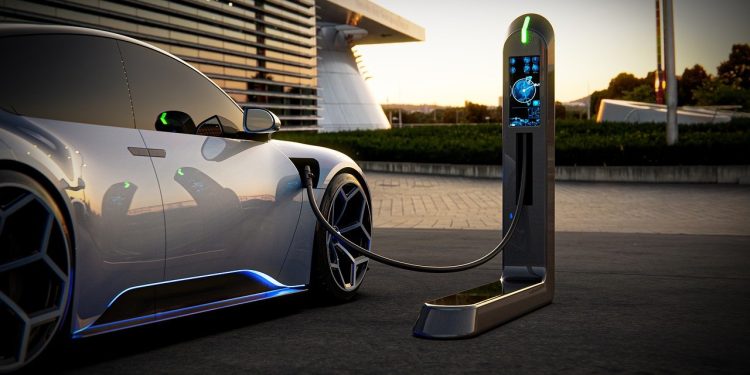DUBAI – (ARAB NEWSWIRE) — The future of electric vehicles (EVs) in the Middle East and North Africa (MENA) region is a topic of growing interest and significance. As the world shifts towards sustainable transportation, the MENA region, traditionally known for its oil- rich heritage, is making strides in adopting EVs. This essay explores the current state, challenges, and prospects of EVs in the MENA region.
Current State of EVs in MENA
The adoption of EVs in the MENA region is still in its early stages. Countries like the United Arab Emirates (UAE) and Saudi Arabia are leading the way, with the UAE having a 3% EV penetration of new car sales [1]. However, in many other countries, the adoption rate is below 1%. The region’s EV market is expected to grow significantly, with projections indicating that EVs could account for up to 64% of new car sales by 2035 [1].
Government Initiatives and Policies
Governments in the MENA region are playing a crucial role in promoting the adoption of EVs. For instance, the UAE has ambitious plans to build and operate 70,000 charging points in Abu Dhabi by 2030 [1]. Saudi Arabia’s Vision 2030 also includes significant investments in EV infrastructure. These initiatives are aimed at reducing the region’s carbon footprint and diversifying its economy away from oil dependency.
Challenges to EV Adoption
Despite the positive outlook, several challenges hinder the widespread adoption of EVs in the MENA region. One of the primary obstacles is the extreme temperatures, which can cause EV batteries to overheat and discharge faster [1]. Additionally, the lack of sufficient charging infrastructure remains a significant barrier. While countries like the UAE and Saudi Arabia are making progress, other nations lag.
Another challenge is the economic disparity within the region. In countries like Syria and Lebanon, where daily power shortages are common, the transition to EVs seems distant and unrealistic [1]. The high initial cost of EVs also deters many potential buyers, despite the long-term savings on fuel and maintenance.
Consumer Preferences and Market Dynamics
Understanding consumer preferences is essential for the growth of the EV market in the MENA region. Middle Eastern consumers are drawn to EVs that are technologically advanced and luxurious [2]. Automakers are investing in creating EVs that cater to these preferences, featuring high-quality materials, state-of-the-art infotainment systems, and advanced safety features.
A recent survey by Deloitte found that price and product quality are the most important factors for potential EV buyers in the region [2]. Consumers prefer to make informed decisions through various channels, including social media, and value in-person showroom visits and test drives. They are motivated by the reduced maintenance costs, technological innovations, and overall cost savings that EVs offer.
Future Prospects
The future of EVs in the MENA region looks promising, with significant growth expected in the coming years. The market is projected to reach $7.65 billion by 2028, up from $2.7 billion in 2023 [2]. This growth is driven by government initiatives, increased awareness of energy storage solutions, and the expansion of 5G telecommunications networks.
Moreover, the region’s energy-rich countries are investing in renewable energy sources, which will further support the adoption of EVs. For example, Saudi Arabia’s NEOM project aims to create a sustainable city powered entirely by renewable energy, with a significant focus on EVs [2].
Conclusion
In conclusion, the future of electric vehicles in the Middle East and North Africa is bright, with substantial growth expected in the coming years. While challenges such as extreme temperatures, lack of infrastructure, and economic disparities exist, government initiatives and changing consumer preferences are driving the adoption of EVs. As the region continues to invest in renewable energy and advanced technologies, the transition to electric vehicles will play a crucial role in shaping a sustainable and diversified future for the MENA region.
This article on the future of electrical vehicles (EVs) in the Middle EAST and North Africa is published and distributed by Arab Newswire™. To reach target audience in GCC/MENA regions, consider press release distribution by contacting us through these messaging platforms: Mobile/WhatsApp: +1832-716-2363, Skype: groupwebmedia, Telegram: @groupwebmedia.







